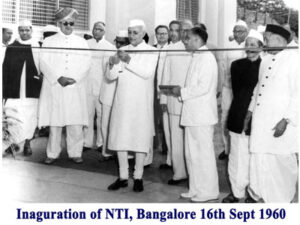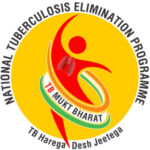


Latest Updates
National Tuberculosis Institute, Government of India, Ministry of Health & Family Welfare

Tuberculosis has long been acknowledged as a pressing public health challenge. Tuberculosis (TB) is attributed to Mycobacterium tuberculosis, a bacterium typically transmitted through the air by individuals actively sick with TB, often through coughing. The ICMR survey conducted from 1955 to 1958 revealed alarming statistics, indicating 4 sputum smear-positive cases and 16 radiologically positive cases of pulmonary TB per 1000 individuals in both rural and urban areas. Recognizing the gravity of this situation, the Indian Government took proactive steps by establishing the National Tuberculosis Institute in 1959 within the AVALON building in Bangalore, generously provided by the former Maharaja of Mysore. This strategic move aimed to address the widespread prevalence of TB by fostering research, devising effective strategies, and implementing comprehensive programs for the prevention, diagnosis, and treatment of tuberculosis.
 The establishment of this specialized institute marked a pivotal moment in India’s commitment to combatting TB, catalyzing significant advancements in research, diagnostics, treatment modalities, and the implementation of nationwide TB control initiatives. The Institute was accredited as a WHO Collaborating Centre for TB research and training in 1985. The Institute had also served as the nodal centre for operational research related to RNTCP. The major activities of a nodal centre are to organize workshops and dissemination of research data through publications. Objectives for establishing NTI were as under:
The establishment of this specialized institute marked a pivotal moment in India’s commitment to combatting TB, catalyzing significant advancements in research, diagnostics, treatment modalities, and the implementation of nationwide TB control initiatives. The Institute was accredited as a WHO Collaborating Centre for TB research and training in 1985. The Institute had also served as the nodal centre for operational research related to RNTCP. The major activities of a nodal centre are to organize workshops and dissemination of research data through publications. Objectives for establishing NTI were as under:
- To formulate a nationally applicable, economically feasible and scientifically valid TB control program.
- To train the workforce for the implementation of NTEP.
- To provide technical support to CTD and State TB units for effective implementation of TB control
- To monitor and supervise the NTEP
- To undertake operation research
- To serve as National Reference Laboratory (NRL)
Upcoming Training
-
22-04-2025
ToT on AI tool in Ni-Kshay for LPA result interpretation
( Start Date : 21-04-2025 ) -
29-04-2025
ToT on AI tool in Ni-Kshay for LPA result interpretation
( Start Date : 28-04-2025 ) -
02-05-2025
ToT on AI tool in Ni-Kshay for LPA result interpretation
( Start Date : 01-05-2025 ) -
17-05-2025
National Training of District TB Officers on NTEP
( Start Date : 05-05-2025 ) -
13-06-2025
MGIT for Culture & DST
( Start Date : 09-06-2025 ) -
18-06-2025
One day Truenat Refresher Training
( Start Date : 18-06-2025 ) -
05-07-2025
National Training of District TB Officers on NTEP
( Start Date : 23-06-2025 ) -
11-07-2025
MGIT for Culture & DST
( Start Date : 07-07-2025 ) -
10-07-2025
One day Truenat Refresher Training
( Start Date : 10-07-2025 ) -
02-08-2025
National Training of District TB Officers on NTEP
( Start Date : 21-07-2025 ) -
08-08-2025
Training in Molecular Methods - LPA
( Start Date : 04-08-2025 ) -
04-09-2025
NTEP Training for Post-Graduate Students
( Start Date : 02-09-2025 ) -
12-09-2025
Liquid Culture for 1st & 2nd line and newer drugs DST
( Start Date : 08-09-2025 ) -
27-09-2025
National Training on NTEP for program managers
( Start Date : 15-09-2025 ) -
14-11-2025
Comprehensive Training in Quality Assurance of TB diagnostic tools under NTEP
( Start Date : 10-11-2025 ) -
29-11-2025
National Training on NTEP for program managers
( Start Date : 17-11-2025 ) -
05-12-2025
Liquid Culture for 1st& 2nd line and newer drugs DST
( Start Date : 01-12-2025 ) -
20-12-2025
National Training on NTEP for program managers
( Start Date : 08-12-2025 )















